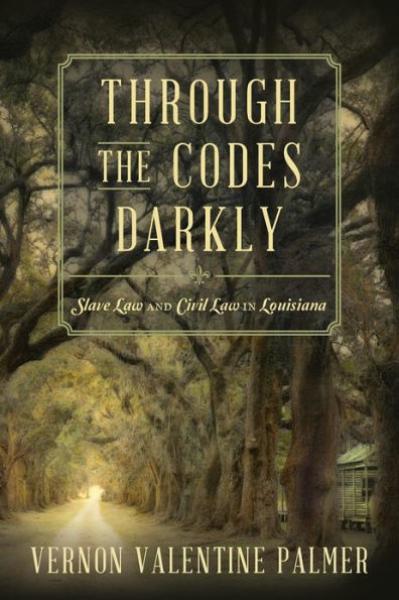Description
"A very useful addition to the growing literature on the law of slavery, this book is particularly important in helping understand the complexity of the Louisiana Code Noir and its impact on American slave law. Palmer's discussion of how the Code came to be written will surprise and educate those who read this book. "
--Paul Finkelman, John Hope Franklin Visiting Professor of American Legal History Duke University School of Law and President William McKinley Distinguished Professor of Law, Albany Law School
"When it comes to demystifying slave law in Louisiana, Vernon Palmer is practically peerless. It's probably because he is equally comfortable in the weeds of lived experience as he is poring over the pages of classical learning. These masterful essays on the Code Noir's origins, plus Louisiana's 150-year interplay between custom and legal practice, belong on the shelf of anyone with the faintest curiosity about human bondage and the laws fashioned to make it work."
--Lawrence N. Powell, Professor Emeritus, Department of History, Tulane University
"Slavery remains a current social and political problem, and Vernon Palmer s brilliant work illuminates its history, showing its legal and social complexity through a study primarily of Louisiana, where slavery was included in the first civil codes. Beautifully written, humane and insightful, this monograph will promote reflection on the fascinating legal history of Louisiana as well as on the famous Tannenbaum thesis."
--John W. Cairns, FRSE, Chair of Legal History, University of Edinburgh
"Palmer has written a path-breaking and splendid account of how Louisianians, newly under American rule, wrote the first modern codes that incorporated slavery in a systematic way into their civil law. Until now, ignored by scholars, these codifications moved slavery from the edges of the legal system to the very center stage in Louisiana courtrooms. The redactors of these codes implanted provisions about slavery into the law of persons, property, successions, sales and prescription, producing a unique Atlantic World slave law of incomparable richness and complexity unseen in other legal systems."
--Judith Kelleher Schafer author of Slavery, the Civil Law and the Supreme Court of Louisiana and Becoming Free, Remaining Free: Manumission and Enslavement in New Orleans, 1846-1862
Product Details
- Lawbook Exchange, Ltd. Brand
- Oct 23, 2012 Pub Date:
- 1616193263 ISBN-10:
- 9781616193263 ISBN-13:
- 214 Pages
- 9 in * 6 in * 0.49 in Dimensions:
- 1 lb Weight:




